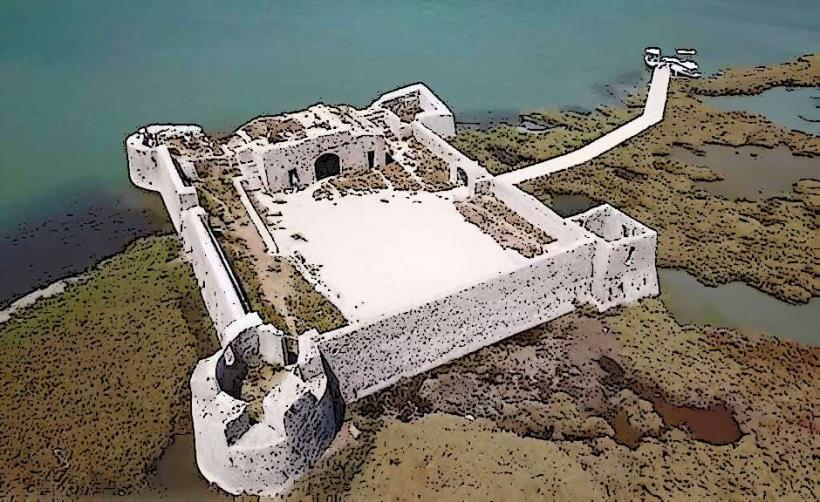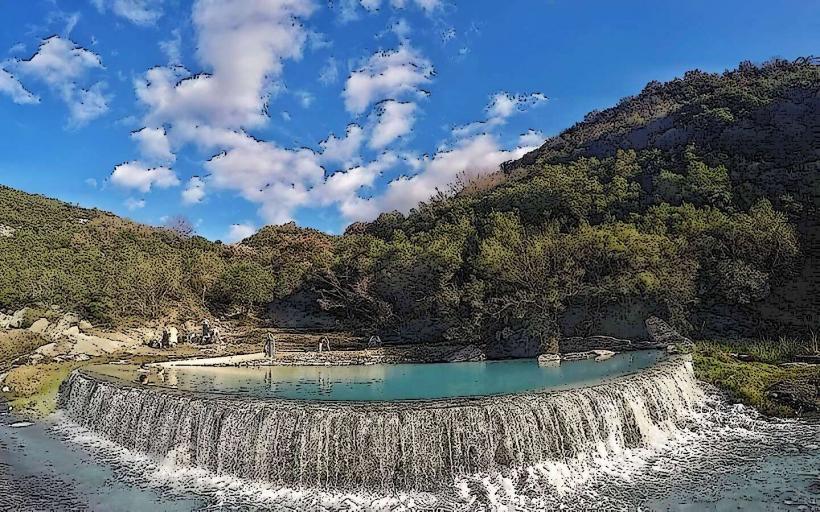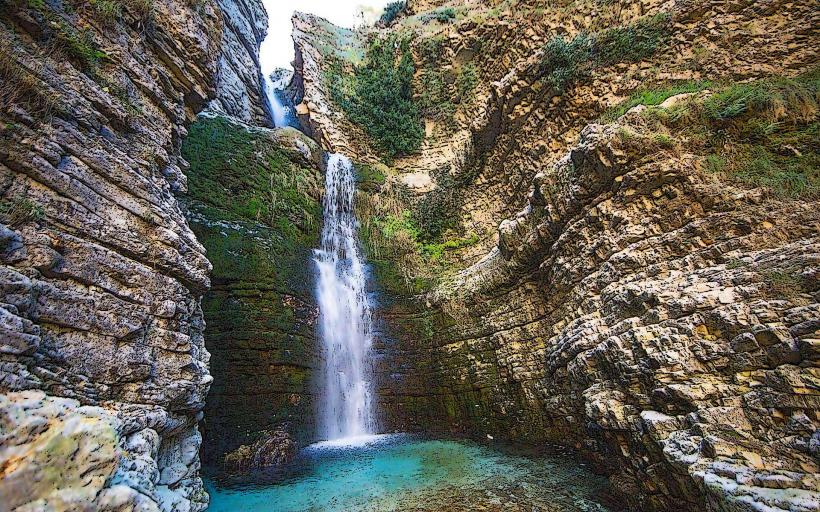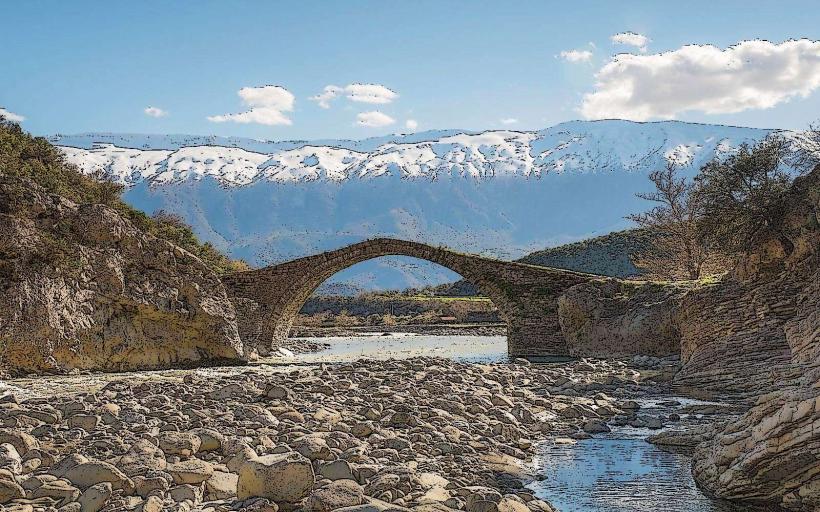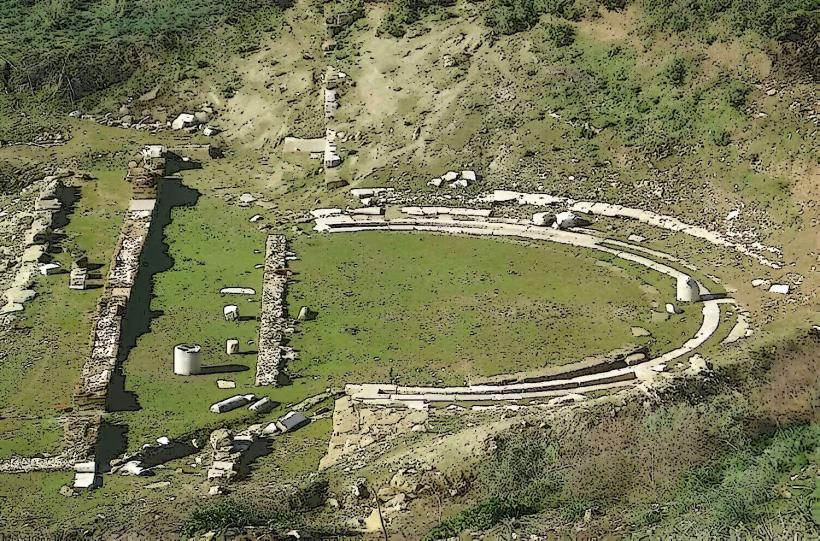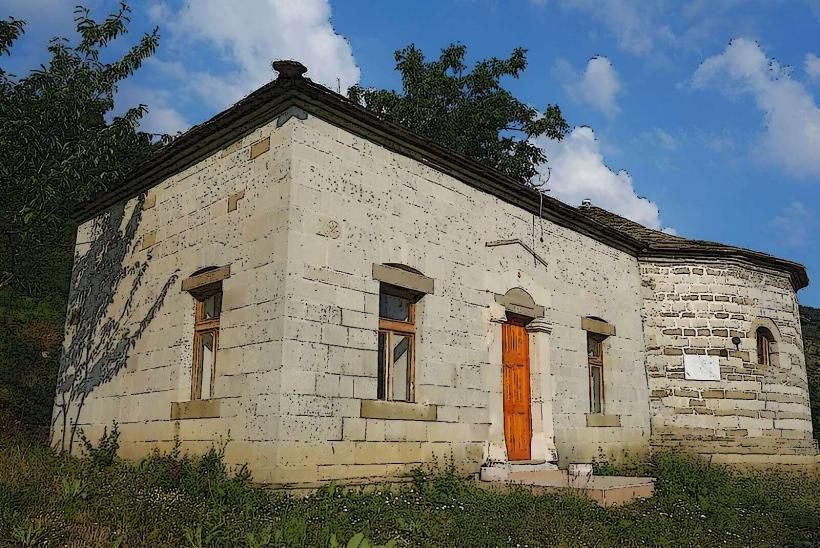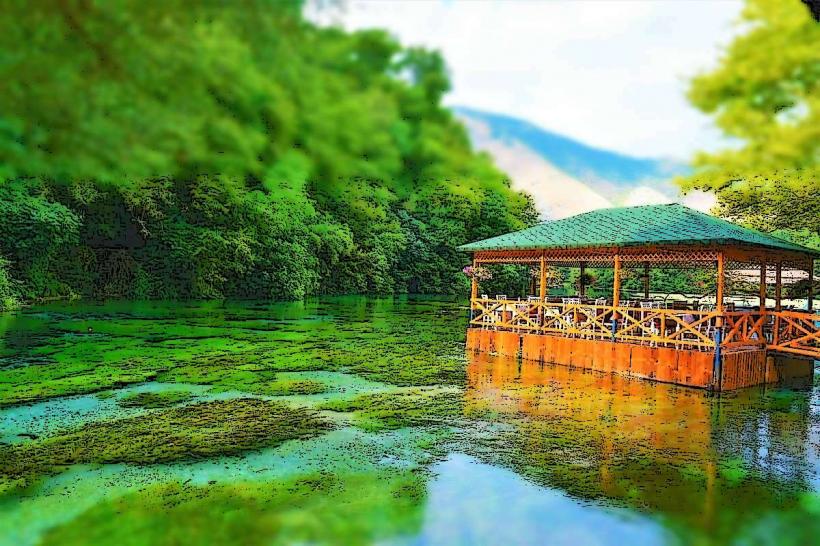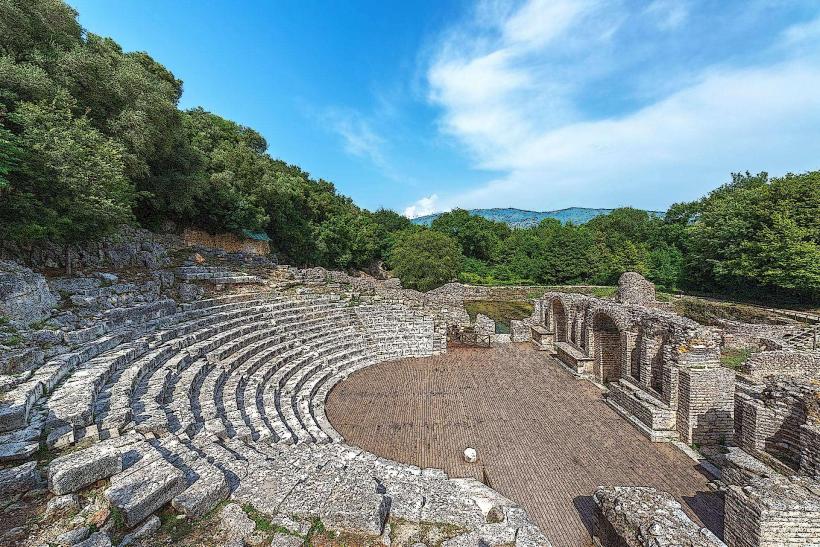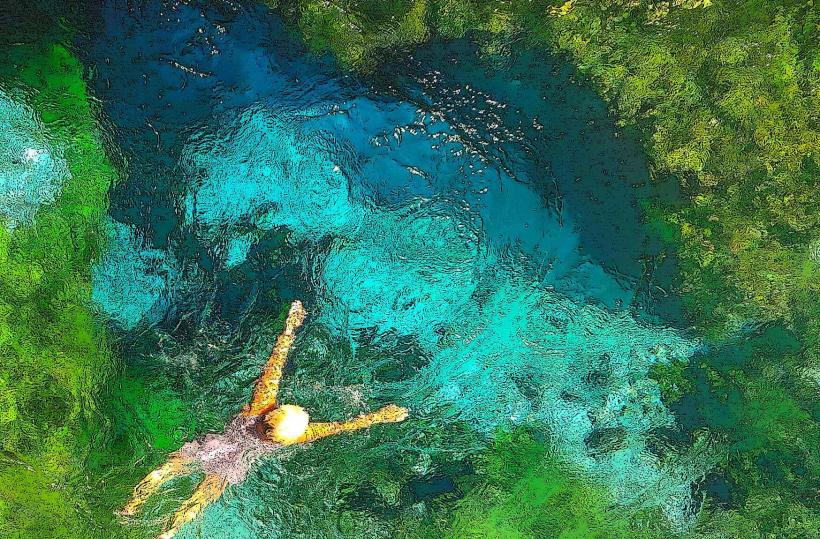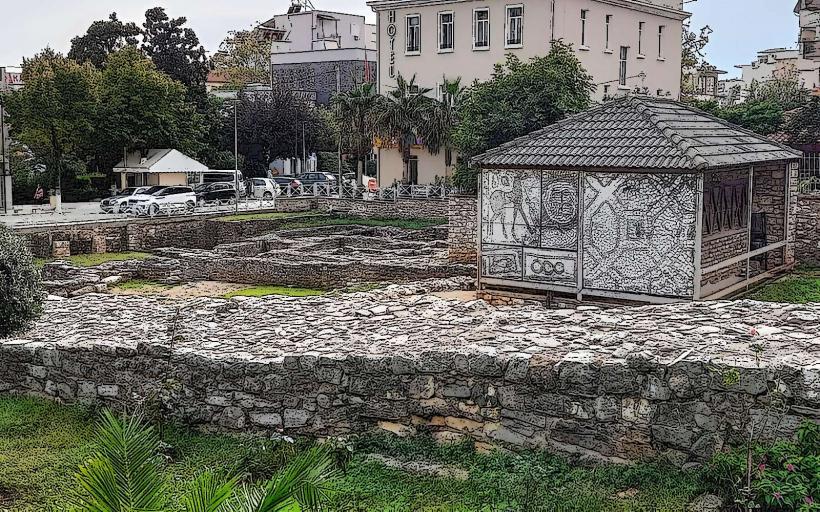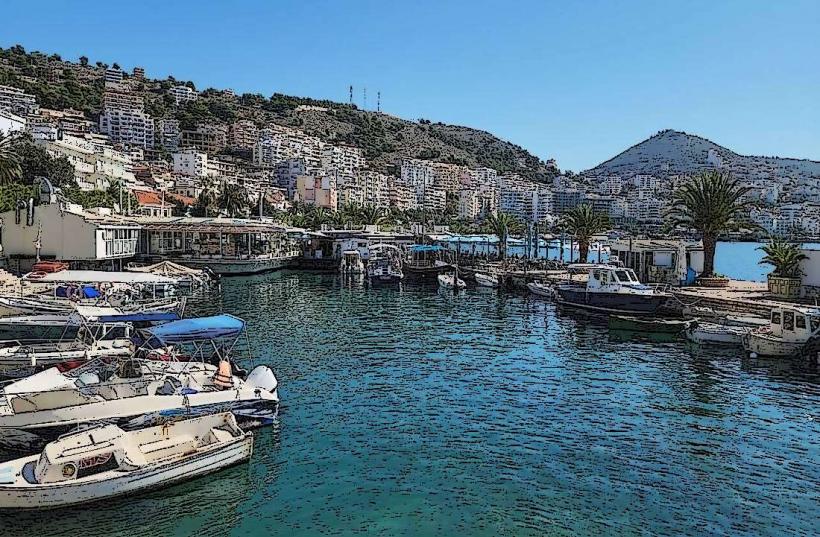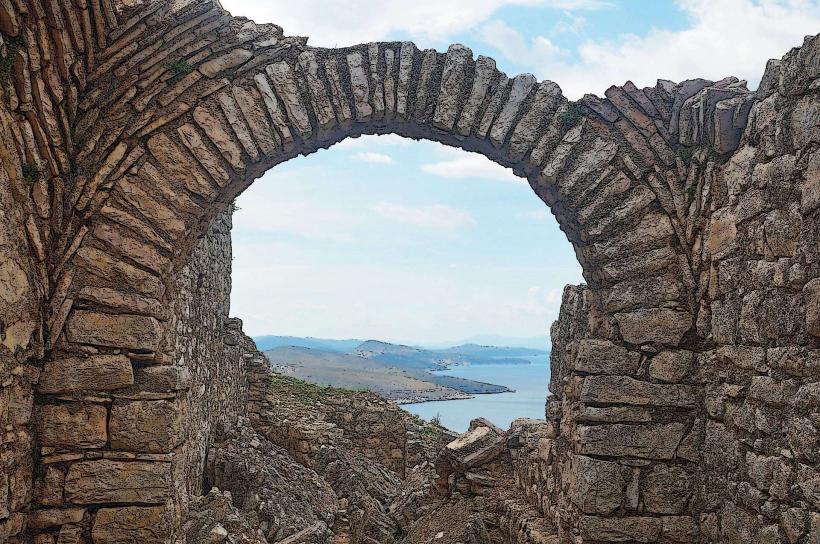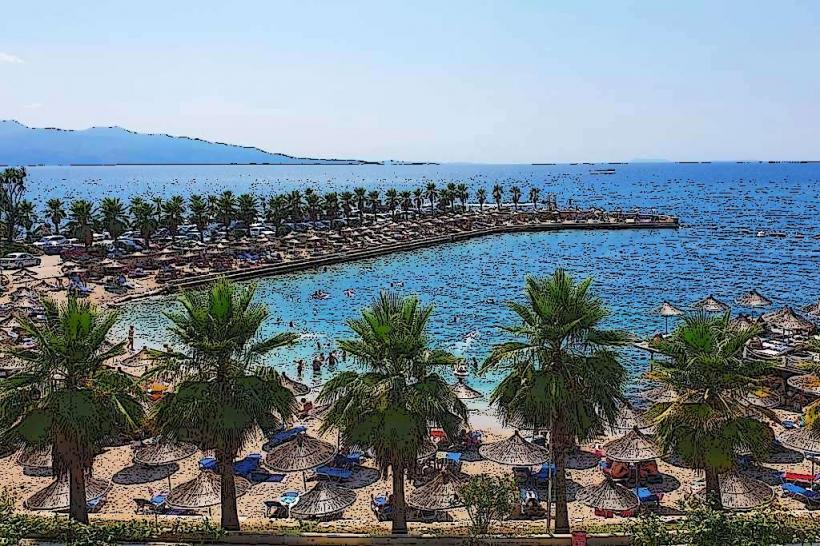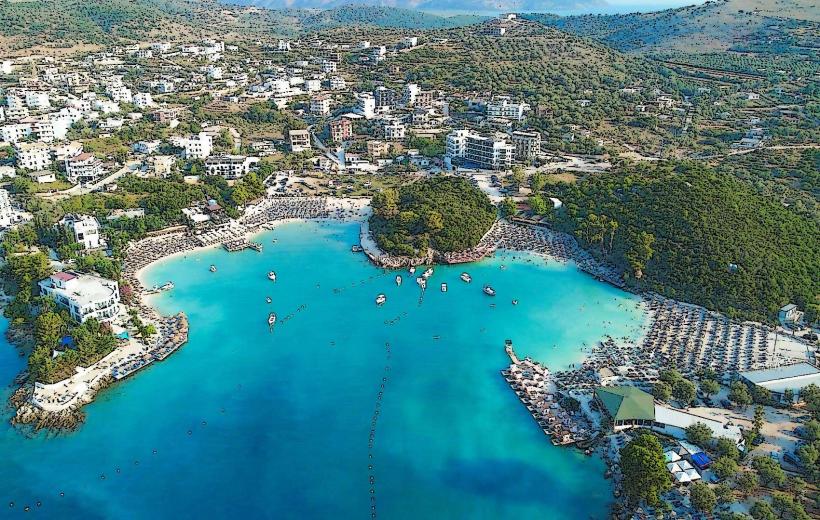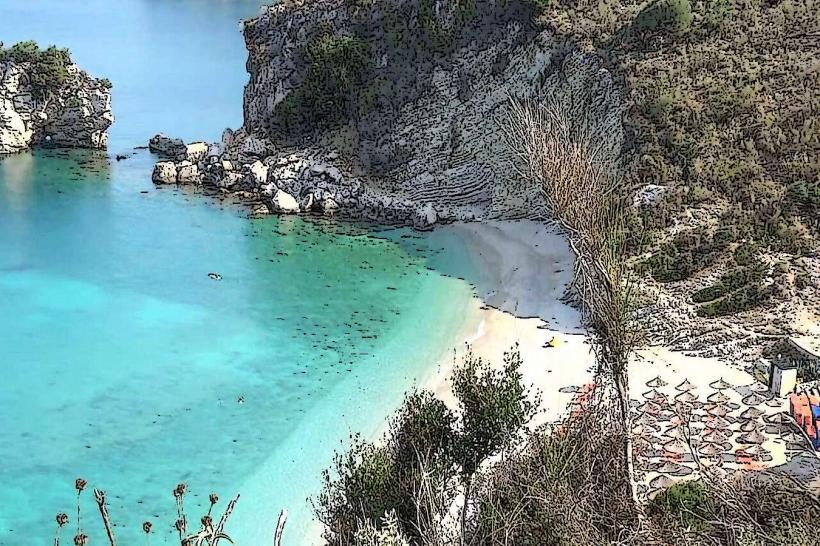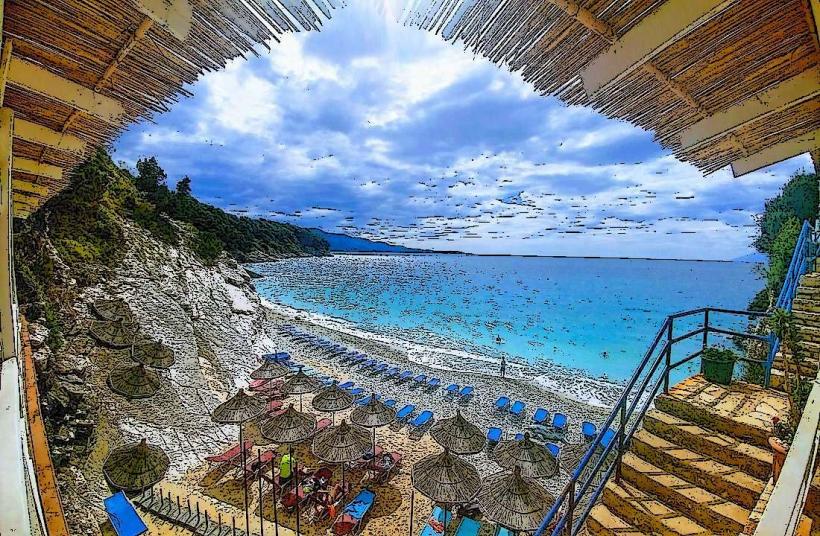Information
Landmark: St. Mary's MonasteryCity: Sarande
Country: Albania
Continent: Europe
St. Mary’s Monastery, located near Sarandë in southern Albania, is a historic and spiritual landmark nestled on Mesopotam Hill in the village of Mesopotam. This Byzantine-era monastery is celebrated for its architectural splendor, rich history, and serene setting, making it a must-visit site for those exploring the cultural and religious heritage of the region.
Geographic Location:
- Region: The monastery is in the village of Mesopotam, approximately 13 kilometers (8 miles) northeast of Sarandë, along the road leading to Delvinë.
- Setting: Surrounded by rolling hills, olive groves, and the tranquil landscape of southern Albania, the monastery is perched on a slight elevation, offering panoramic views.
Historical Background:
Foundation:
- St. Mary’s Monastery was established during the 11th or 12th century, during the Byzantine era, and reflects the cultural and religious significance of the Orthodox Christian tradition in the region.
Medieval Role:
- The monastery served as a spiritual and educational hub, playing a crucial role in the local community’s religious life and offering a place for prayer, learning, and refuge.
Ottoman Period:
- During Ottoman rule, the monastery faced challenges, including partial destruction, but remained a revered spiritual site for the local Orthodox Christian population.
Modern Era:
- Despite periods of neglect during Albania's communist regime, the monastery has undergone restoration and continues to be an important religious site.
Architectural Features:
Church of the Dormition of the Virgin Mary:
- The central structure is the Byzantine-style church, dedicated to the Dormition (Assumption) of the Virgin Mary.
- The church features a cross-in-square design, typical of Byzantine architecture, with a central dome and beautifully carved stonework.
Defensive Walls:
- Surrounding the monastery are massive stone walls, built to protect the complex during turbulent times. The walls feature decorative reliefs of animals, mythical creatures, and symbolic motifs, adding to their artistic and historical value.
Interior Design:
- The church’s interior is adorned with frescoes and mosaics, many of which have faded but still hint at the artistic excellence of the Byzantine era.
- The iconostasis, separating the nave from the altar, showcases intricate woodwork and painted icons.
Bell Tower:
- A later addition to the complex, the bell tower stands as a symbol of the monastery’s ongoing religious function.
Religious and Cultural Significance:
- Orthodox Christianity:
- The monastery is a center for Orthodox Christian worship and a pilgrimage site, especially during major feast days like the Feast of the Dormition (August 15).
- Symbol of Resilience:
- Surviving centuries of political and religious upheaval, the monastery stands as a testament to the enduring faith and cultural heritage of the local community.
Activities and Highlights:
- Exploring the Monastery:
- Visitors can wander through the monastery grounds, admiring its ancient walls, carvings, and architecture.
- Pilgrimage:
- The site remains an active place of worship, and visitors can attend services or observe religious rituals.
- Photography:
- The picturesque setting and historical architecture make it a perfect spot for photography enthusiasts.
- Nearby Natural Beauty:
- The tranquil surroundings offer opportunities for leisurely walks and enjoying the serene landscape.
Practical Information:
- Best Time to Visit:
- Spring and autumn provide mild weather and fewer crowds, making these seasons ideal for a visit.
- Getting There:
- The monastery is easily accessible by car from Sarandë or Delvinë. Local tours often include it as part of cultural or religious itineraries.
- What to Bring:
- Modest clothing is recommended for entering the church, and comfortable walking shoes are advised for exploring the grounds.
Nearby Attractions:
- Blue Eye Spring:
- A stunning natural spring with crystal-clear water, located about 20 kilometers (12 miles) from the monastery.
- Butrint National Park:
- A UNESCO World Heritage Site with ancient ruins from the Greek, Roman, and Byzantine eras, located south of Sarandë.
- Lekuresi Castle:
- A hilltop fortress near Sarandë offering panoramic views of the coast and surrounding landscape.
- The Beaches of Ksamil:
- Known for their turquoise waters and white sands, these beaches are ideal for relaxation and exploration.
Conservation Efforts:
- The monastery is protected as a cultural monument by the Albanian government, ensuring its preservation for future generations.
- Ongoing restoration projects aim to maintain the site’s structural integrity and restore its historical features, such as frescoes and stone carvings.
Conclusion:
St. Mary’s Monastery is more than just a religious site—it is a window into the Byzantine past of Albania, a symbol of resilience, and a peaceful retreat for those seeking spiritual or cultural enrichment. Whether you are drawn to its historical significance, architectural beauty, or serene surroundings, a visit to this monastery is a memorable journey into Albania’s rich heritage.

